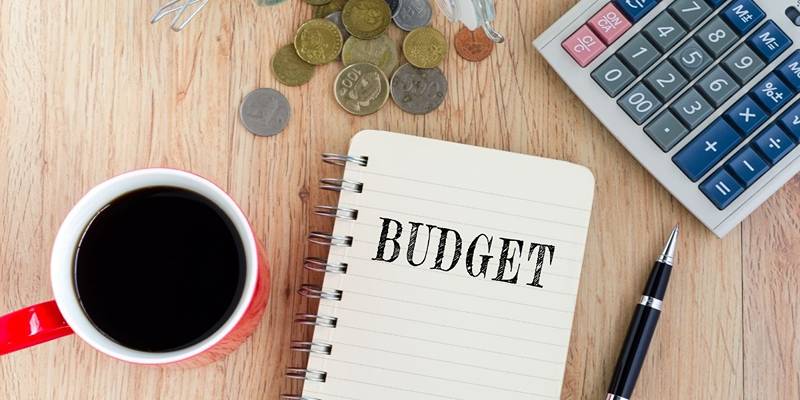Buying an apartment is a major decision that demands planning, financial awareness, and a clear strategy. Whether you're a first-time buyer or an investor, the process can feel overwhelming. It's not just about finding the right space—it's about making a smart investment, ensuring affordability, and meeting legal requirements. With the right approach, you can navigate the process smoothly and avoid costly mistakes.
Skipping essential steps or rushing into a purchase can lead to costly mistakes and unexpected challenges. But with a clear understanding of what to expect, you can navigate the process with confidence, avoid common pitfalls, and secure an apartment that truly suits your goals.
Understanding Your Budget and Financial Readiness
Before you start looking for an apartment, it's important to figure out how much you can afford. Your budget isn't the cost of the apartment; it encompasses closing costs, property tax, maintenance charges, and upgrades. The starting point is evaluating your finances—checking your income, savings, current debts, and monthly expenses to have a realistic idea of your purchasing power.
One of the largest determinants of your capacity to purchase is your credit score. If you're going to borrow money, lenders will review your credit history to determine your interest rate and lending limit. A higher credit score means more favorable loan terms, which could save you a lot of money in the long run. If your credit rating must be improved, making it better prior to a mortgage application is a lifesaver. Closing out outstanding accounts, reducing credit use, and paying bills on time can greatly enhance your rating.
Another important step is getting mortgage pre-approval. This provides a clear picture of how much money you can be approved for, and it helps narrow your apartment search. It also improves your bargaining power—sellers will be more inclined to regard your offer with seriousness when they know you are backed by funding.
Choosing the Right Location and Apartment Type
Location is one of the most critical factors when buying an apartment. It affects the price, resale value, rental potential, and overall living experience. Before settling on a location, consider factors like proximity to work, public transportation, schools, shopping centers, and future development plans. A well-connected area with good infrastructure is likely to appreciate over time, making it a solid real estate investment.

Beyond location, think about the type of apartment that suits your needs. Are you looking for a high-rise unit with amenities like a gym and a pool, or do you prefer a low-rise building with fewer residents? Some apartments come with homeowners' association (HOA) fees, which cover maintenance and amenities. These fees can be high, so it's essential to factor them into your budget.
Another important aspect is the condition of the building. New constructions often come with modern features but may have construction delays or unforeseen issues. Older buildings might have charm but could require significant repairs. Conducting a thorough inspection before making an offer can save you from expensive surprises down the line.
The Buying Process: From Offer to Closing
Once you’ve found an apartment that meets your needs and budget, the next step is making an offer. In competitive markets, properties can receive multiple offers, so having a pre-approved mortgage and a knowledgeable real estate agent can help you negotiate effectively. Your offer should reflect the market value of the apartment, recent sales in the area, and any repairs needed.
If your offer is accepted, you’ll enter the due diligence phase. This is when you thoroughly inspect the property and review all legal documents. Hiring a professional inspector is highly recommended, as they can identify structural issues, plumbing concerns, or electrical faults. Additionally, review the apartment’s ownership documents to ensure there are no legal disputes or outstanding debts tied to the property.
After clearing the due diligence phase, it's time to finalize your financing. The lender will conduct an appraisal to confirm the apartment's market value. Once approved, you'll sign the mortgage agreement and prepare to close. The closing process involves paying the remaining balance, signing legal paperwork, and officially transferring ownership. Closing costs, which include legal fees, title insurance, and processing charges, should be budgeted in advance.
Managing Ownership Costs and Long-Term Responsibilities
Owning an apartment comes with ongoing financial responsibilities beyond the initial purchase. Monthly costs such as property taxes, utility bills, maintenance fees, and insurance should be factored into your budget. Some apartment buildings require contributions to a reserve fund for major repairs, which can add to your expenses.

If you plan to rent out an apartment, understanding the rental market in the area is crucial. High demand can lead to steady income, while weak rental markets may result in vacancies. Additionally, managing tenants, handling repairs, and complying with local rental laws are responsibilities that come with being a landlord.
Maintaining the apartment's condition is key to preserving its value for personal use. Regular upkeep, timely repairs, and occasional renovations can ensure that your investment remains a solid asset. If you're part of an HOA, staying informed about policy changes and upcoming maintenance projects will help you plan financially and avoid unexpected costs.
Long-term planning is essential when buying an apartment. Whether it’s for living, renting, or reselling, understanding the financial and legal aspects of property ownership can help you make sound decisions and maximize the benefits of your investment.
Conclusion
Buying an apartment is a journey that requires patience, planning, and financial discipline. Rushing into a purchase without considering long-term affordability or legal requirements can lead to stress and financial hardship. From setting a realistic budget and securing financing to choosing the right location and handling legal paperwork, every step plays a crucial role in ensuring a smooth transaction. A well-thought-out approach can help you avoid common mistakes and secure a home that fits your lifestyle and financial goals. With the right preparation, buying an apartment can be a rewarding investment in your future.












